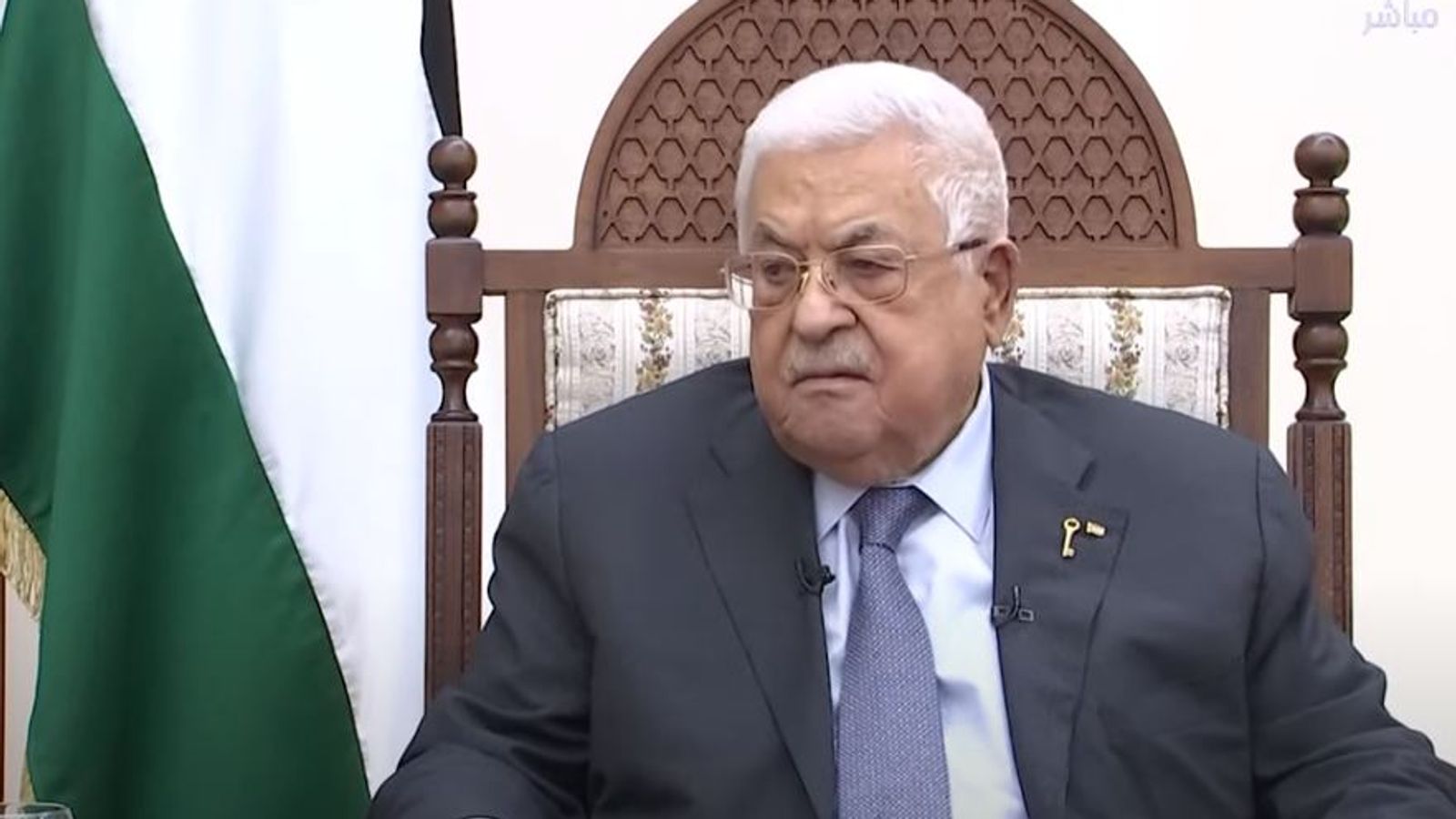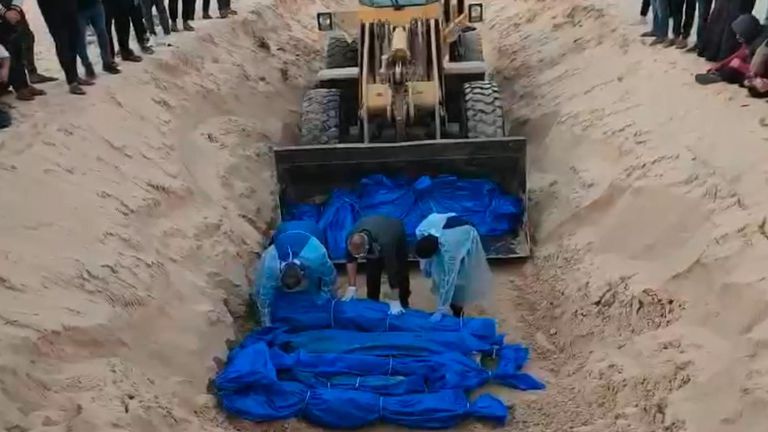Palestinian President Mahmoud Abbas has said the war in Gaza is “greater than a war of extermination”.
Speaking to Egyptian TV channel ON, Mr Abbas claimed the impact of the conflict between Israel and Hamas on the Palestinian people is “greater than a disaster”.
He went on to compare the war to the mass displacement and dispossession of Palestinians during the 1948 Arab-Israeli war – which the Palestinians call nakba, meaning catastrophe in Arabic.
“What happened in 1948, emigration and destruction, and what is happening now is far uglier than what happened (then),” Mr Abbas said.
“What is happening now is the ugliest thing happening to the Palestinian people, not only in Gaza but in the West Bank and Jerusalem in the last 79 days to today.”
It comes as the Hamas-led Gaza health ministry says 250 Palestinians have been killed and 500 wounded in the past 24 hours – with 106 of those said to have died in a Christmas Eve airstrike on the Maghazi refugee camp.
A further six people were killed in the West Bank city of Tulkarm during an Israeli raid, the Palestinian health ministry said on Wednesday.
But despite international efforts to halt the fighting, Israel‘s prime minister told members of his party the war “isn’t close to finished”.
When asked how the Israeli leadership imagines Gaza after the war, Mark Regev, senior adviser to Benjamin Netanyahu, told Sky News Hamas “must be destroyed”.
‘In front of the eyes of the world’
During the interview, the Palestinian president criticised the US for its continued support for Israel since the 7 October Hamas-led attack.
He claimed that the deaths of civilians is happening “in front of the eyes of the world” and America is in the lead.
He implied that if the country accepts a United Nations resolution calling for an immediate ceasefire, rather than vetoing it, the war may have a chance of coming to an end.
On 15 December, Mr Abbas met with US national security adviser Jake Sullivan, who reiterated the US’s stance that the Palestinian Authority should be responsible for governing Gaza at the end of the war.
Read more:
Video appears to show IDF soldiers rounding up half-naked men in Gaza
Impossible conditions for children born into conflict
Iranian drone behind attack on chemical tanker
But, he acknowledged that significant changes and “a lot of work” would be needed to revamp and revitalise the authority.
Mr Abbas agreed that a Palestinian state must be established in the aftermath of the conflict, reiterating in the Egyptian TV interview that it must be made up of the West Bank, Gaza and East Jerusalem, The Times of Israel reported.
‘Isn’t a day without killing’
The Gaza health ministry reports 20,674 people have been killed and 54,536 injured in Israeli strikes since 7 October. Around 1,200 Israelis were killed by Hamas raiders that day.
Acknowledging the level of destruction, Mr Abbas said “there isn’t a day without killing” in all the cities and refugee camps in Gaza, adding that the Israeli military’s defence about “protecting itself” is without logic.
Meanwhile, both Hamas and Islamic Jihad have been holding separate talks with Egyptian mediators in Cairo.
But, according to two Egyptian security sources, both sides rejected Egypt’s proposal for a permanent ceasefire – which would reportedly involve Hamas giving up power in the Gaza Strip.
“We reiterate that there can be no negotiations without a comprehensive cessation of aggression,” Izzat Al Rishq, a member of Hamas’s political bureau, said in response.

